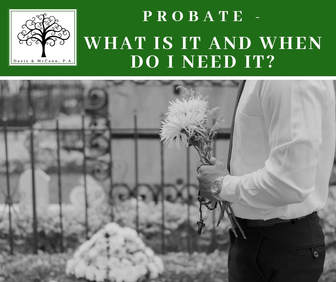 The end of any year is a busy time with holidays and family obligations. However, it also is a good time to take stock in your personal and professional life and plan for any adjustments you need to make for 2019. If you already have an estate plan in place, take this time to review the beneficiaries that you named in your Trust or Will. Have there been any marriages, divorces, or births in the past year that require a change to your estate planning documents? It also is advisable to review the beneficiaries named on your insurance policies, 401(k), IRA, bank accounts, and other financial assets. If you’ve purchased or inherited a new house, car, mineral rights, etc. in 2018, your estate plan should include those items. If not accounted for in your estate planning documents, you could unintentionally create a probate action upon your death. Similarly, if you have sold an asset, be sure your estate plan has been adjusted accordingly.  You’ve been named in a Last Will and Testament as an Executor of a Kansas Estate, so now what do you do? Before you begin your role as Executor, here are a few things you might want to know. As Executor, you have the responsibility of distributing the assets of the Estate to the intended beneficiaries, pursuant to the decedent’s Last Will and Testament. You must understand complex legal and/or financial concepts during the course of your job. As a result, Executors should hire an experienced probate attorney to assist them with the probate process and help them avoid costly mistakes. Here is a basic summary of what you can expect the probate process to include:  Probate is a judicial process whereby the decedent’s assets are transferred to his or her heirs or other beneficiaries. Probate also can be referred to as an estate administration. In Kansas, your estate will fall under one of two categories: testate or intestate. If the decedent had a Last Will and Testament, he or she would have a testate estate. An intestate estate occurs when the decedent died leaving no Last Will and Testament and the state laws of intestacy determine who is entitled to the decedent’s assets. Typically, the surviving family members of the decedent will seek the counsel of an experienced probate attorney to navigate the probate process. The attorney will determine whether the Last Will and Testament is valid, conclude whether a probate is necessary, and will advise the Executor or Estate Administrator in his or her duties. |
NEWS YOU CAN USEDavis & McCann, P. A., Archives
April 2021
Categories
All
|

 RSS Feed
RSS Feed